
After chasing our materialistic dreams through the day, the night brings an opportunity to retrospect, relax, and re-energize ourselves for the next day.
But, for those suffering from insomnia and other sleep-related disorders, the night is mostly spent in turning and twisting on their beds in a vain attempt to fall asleep.
A good night’s sleep is critical for maintaining one’s physical, mental, and emotional well-being. Sleep enables you to do justice to your work routines as well as your relationships and helps you feel fresh throughout the day.
A lack of sleep can create serious health problems including obesity, cardiovascular ailments, and diabetes taking a toll on both personal and professional lives (1).
While there is no magic wand that can put you off to sleep immediately, these are 20 science-backed tips that can help you to sleep faster. However, every human body is different so the effect of these tips may vary across individuals.
1. Don’t Compare Yourself with Others
The first step you need to take is not to compare your sleeping hours with others. It will only give you anxiety.
The duration of sleep required varies according to your age, lifestyle, and health conditions. Remember, it is the quality of sleep that matters more (2).
2. Fix your Bedtime

Sleeping at a fixed time every night helps to regulate your circadian rhythm. Keep in mind that this does not happen instantly (3).
Over time and with practice, you will experience that your body feels tired and sleepy and you would want to go to bed at the same time every day.
3. Avoid Long Daytime Naps
Daytime naps break the sleeping pattern and confuse your internal biological clock, thus disrupting your nighttime sleep.
But, do not confuse this with beneficial power naps taken to boost work or study. Limit your power naps to a maximum of 15 to 20 minutes.
Make exercise a daily habit: If you exercise regularly, it helps to reduce the levels of the stress hormone, cortisol, and improve the effects of melatonin, the natural sleep hormone in your body (3) (4).
An imbalance of these hormones in your body can disrupt a good night’s sleep. Exercise pushes your body into subtle exertion that helps you rest peacefully at night. However, you should not exercise just before bedtime.
4. Avoid Caffeine

Studies affirm that caffeine intake immediately before bedtime can interfere with the natural sleep pattern hence it should be avoided (5).
However, variance across studies can be found about caffeine intake and its possible effect on sleep.
Some studies claim that there should be a minimum of 4 hours gap between caffeine intake and sleep to ensure good quality sleep, a few studies suggest that caffeine intake even 10 to 12 hours before sleep can cause sleeplessness (6).
5. Prefer Meditation over Medication
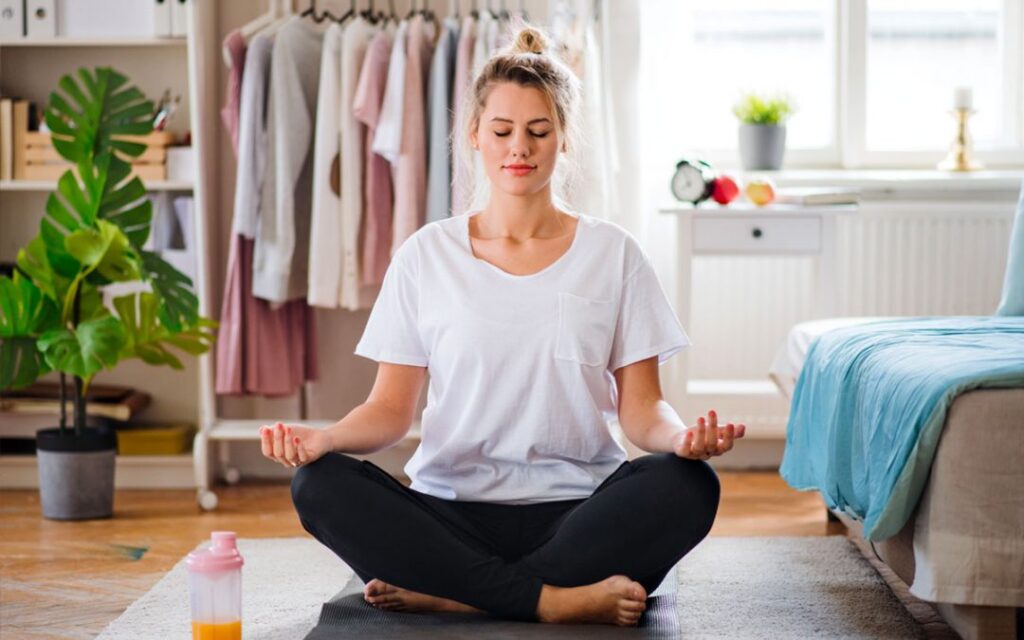
A lot of people start relying on medicines meant for insomnia and sleep-related troubles too early in their lives.
While in the short run, these medications, known as hypnotic sleep medications can provide relief, there are many side effects on your body (7).
It is therefore advisable to trust meditation which helps to improve inner peace and reduces stress and anxiety, thus leading to peaceful night’s sleep.
6. Avoid Liquids Close to Bedtime
If you are taking too many liquids close to bedtime, you can end up spending your night on frequent bathroom trips (8).
Liquids can build up in your bladder and would disrupt your sleep.
7. Follow a Bedtime Ritual

Bedtime rituals can assist you to quickly fall asleep.
It can be anything from listening to calming music, reading a book, drinking a small cup of warm milk, or taking a warm shower, make sure you do it every day before sleep.
Such bedtime rituals send a signal to your body and mind that it is time to get to sleep (9).
8. Regulate your Meals
For a good night’s sleep, keeping a check on what you eat the entire day, and close to bedtime is extremely important.
Try to avoid processed and heavy foods in your diet, especially during the night (10). It takes around 2-3 hours for the food we eat to digest hence if you eat heavy meals during the night, the digestive process may disrupt your sleep.
However, it is also important to ensure that you do not go to bed hungry. Take a light dinner at least 2 hours before bedtime.
9. Create the Right Bedroom Environment

The environment of your bedroom has an impact on the quality of your sleep. If you are sleeping in a hot, poorly ventilated, bright room, this can disrupt your good night’s sleep.
So, make sure that the lights of the room are switched off to help your brain correctly recognize the darkness and attune itself to believe that it is indeed time to go to bed (11).
Also, you must ensure that you choose a well-ventilated room with hygienic surroundings.
10. Adopt the Relaxing Breathing Technique
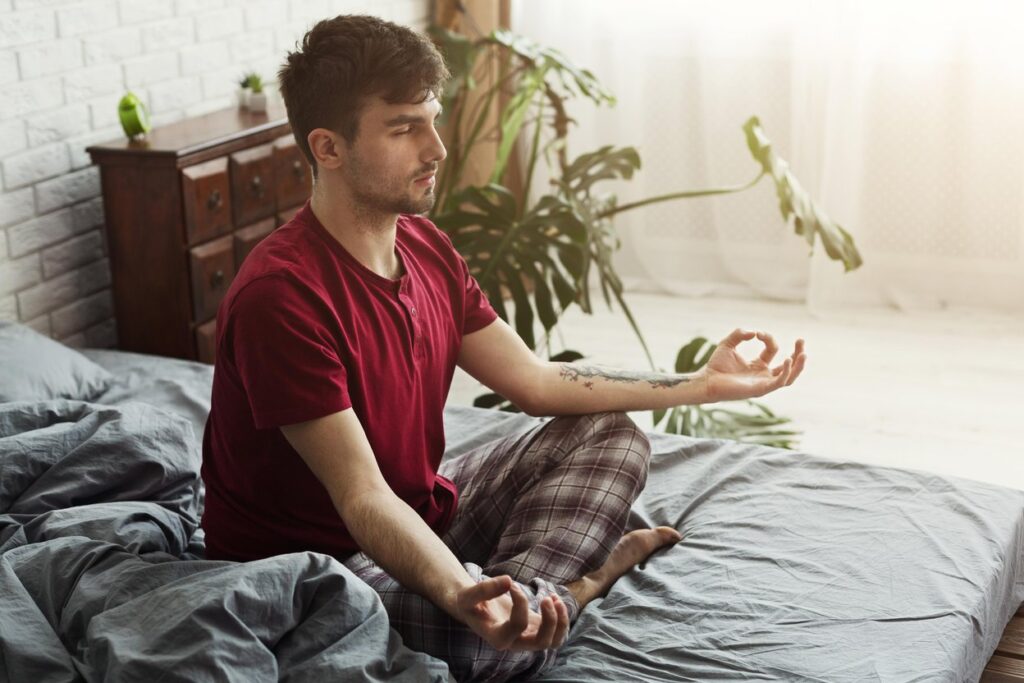
It has been claimed by many studies that adopting this particular 4-7-8 breathing technique (also known as relaxing breathing) can help to relax the mind and body, thus inducing sound sleep (12).
This technique was proposed by Dr. Andrew Weli to control anger, and reduce stress and anxiety. The technique involves inhaling for 4 seconds, holding your breath for 7 seconds, and exhaling for 8 seconds.
11. Fragrances do Matter

Fragrances can play an important role in sleep as there are some fragrances that can help you sleep better and faster.
If you can infuse your surroundings with essential oils, especially lavender, peppermint, and chamomile, or the essential oils containing lemon and orange as the dominating ingredients, this would offer soothing effects and promote sleep (13).
12. Try These Mobile Applications
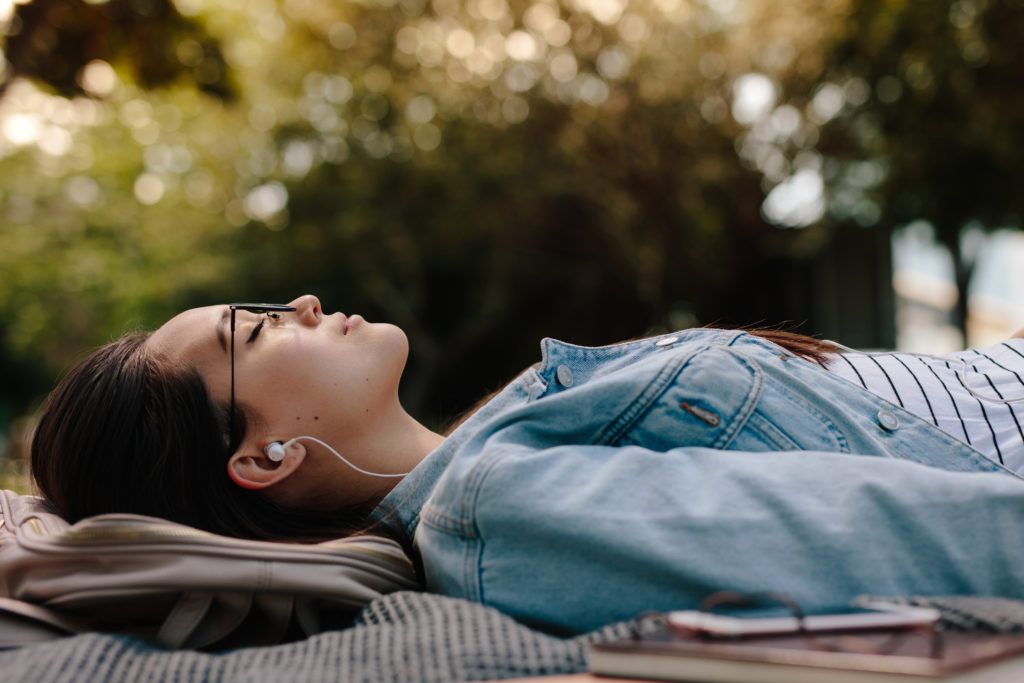
To help people suffering from insomnia, some companies have introduced apps that are claimed to promote mental peace.
The most popular ones in this regard are the Headspace app and the Buddhify app (14) (15). Both these apps intend to offer mindfulness through meditation techniques, sleep casts, sleep music, and sounds.
While it cannot be guaranteed that these apps can help everybody, there is no harm in giving them a try.
13. Avoid Exposure to Electronic Devices
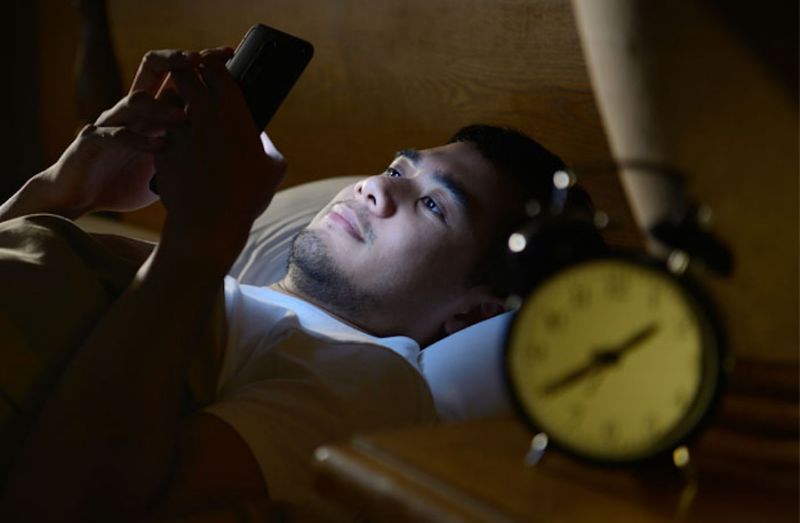
Many of us have the habit of scrolling our smartphones on the bed until we finally fall asleep.
But, studies reveal that the blue light emitted by electronic devices including smartphones, tablets, TV, and laptop screens effectively reduces the release of melatonin levels in the human body (16).
This hormone controls the sleep/wake cycle and if there is a dip, it can make it difficult for the body to relax and find restful sleep.
14. Bed is Important
The role of the bed cannot be overlooked in ensuring a quality night’s sleep. Studies recommend that beds should not be used for work, bed should only mean for sleep purposes (17).
Also, you should always sleep on a comfortable mattress and use a pillow that supports your neck and spine correctly (18). Everything from the bedsheet, pillow covers, and blanket must be clean.
15. Choose the Correct Sleep Position

Some studies claim that sleeping position affects the duration as well as the quality of your night’s sleep (19).
While sleeping on your back is usually considered the best position, in some conditions like pregnancy, it needs to be avoided (20).
Also, very few people can actually sleep on their backs the whole night. Most people sleep on either side and keep changing sides.
It is suggested that you must try finding which side offers you better comfort so that you are not spending the night only changing your sleeping position.
16. Stay Away from Alcohol and Smoking
The consumption of alcohol has several harmful effects on your health, including sleep-related disorders. Avoid alcohol, especially at bedtime, as it can induce drowsiness and nausea and delay your sleep (21).
Smoking is also bad for your sleep so you must refrain from active smoking during bedtime (22). Some studies have found a relationship between second-hand smoke and sleeping difficulties. Thus, it would be better if you could avoid sleeping at a place where someone else smokes.
17. Take the Help of Acupressure
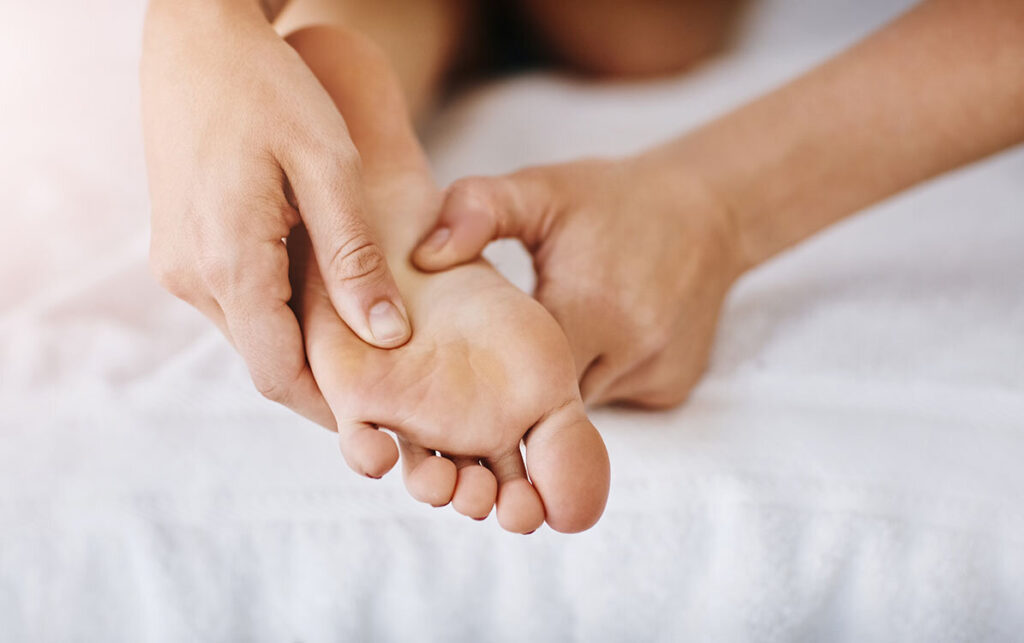
Acupressure is a natural technique that has been accepted by experts as an effective way to induce sleep.
The technique involves applying gentle pressure with your fingers on the particular pressure points of your body. However, acupressure should be tried only under trained supervision (23).
You should also not forget to discuss your health conditions with the expert.
18. Distract your Mind
When you are lying on your bed to sleep, try to not think of sleep. The more you will think about sleep, the more difficult it will become to fall asleep.
You can try listening to music, reading a book, imagining scenic beauty, and counting numbers to distract your mind from sleep (24).
19. Try to Stay Cheerful
Peace of mind is really important if you want to enjoy sound sleep at night (25). Life throws newer challenges every day, but you must not succumb to them.
Try to forget everything that disturbs your mind when you go to bed. Think about the good things that have happened during the day.
20. Take a Supplement
If you have tried all the above methods and nothing is working out for you, consider a supplement.
There are many sleep supplements available in the market by different brands (26). Some contain melatonin, while others may have L-theanine, GABA, magnesium, and 5-HTP as the prominent ingredient. These supplements can help you to get a sound and deep sleep at night.
But, do not take any supplements without consulting your doctor.
The Final Note
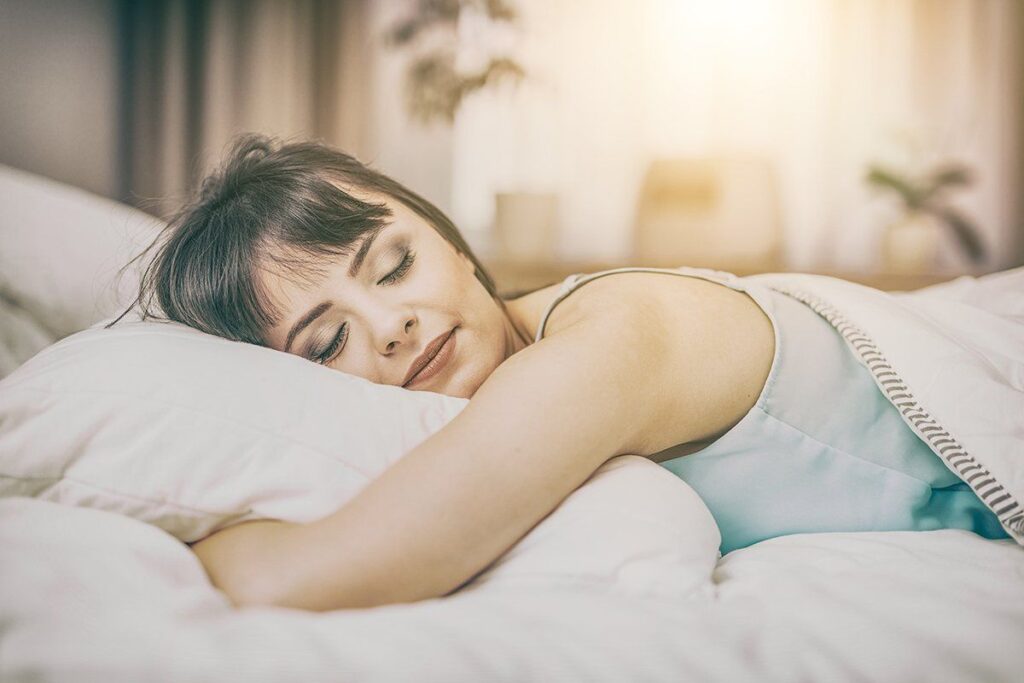
It can actually be terrifying when you see the people around you enjoying their good night’s sleep while you struggle hard to enjoy your share.
While these science-backed tips listed in the article can be of great help, it is important to remind yourself that there is no “one-size-fits-all” method to promote a good night’s sleep. What works for others may not work well for you.
Also, keep in mind that no single method can prove effective for long. You must keep experimenting with all the methods suggested here.
